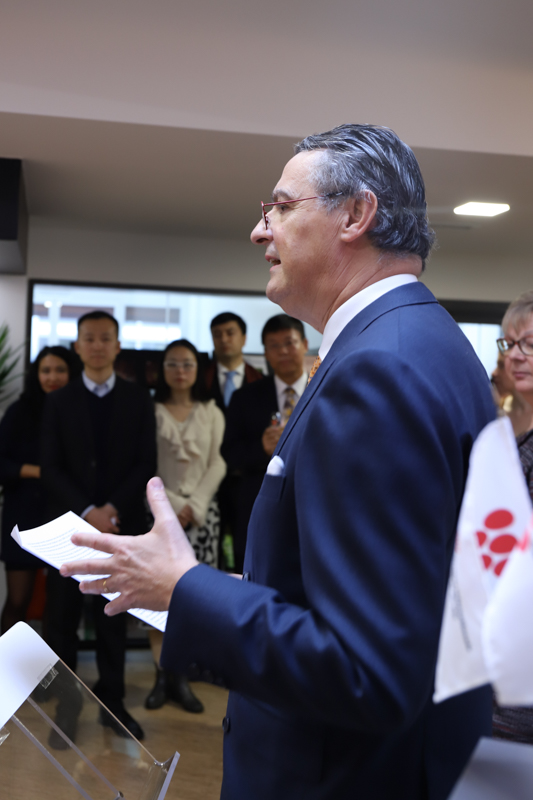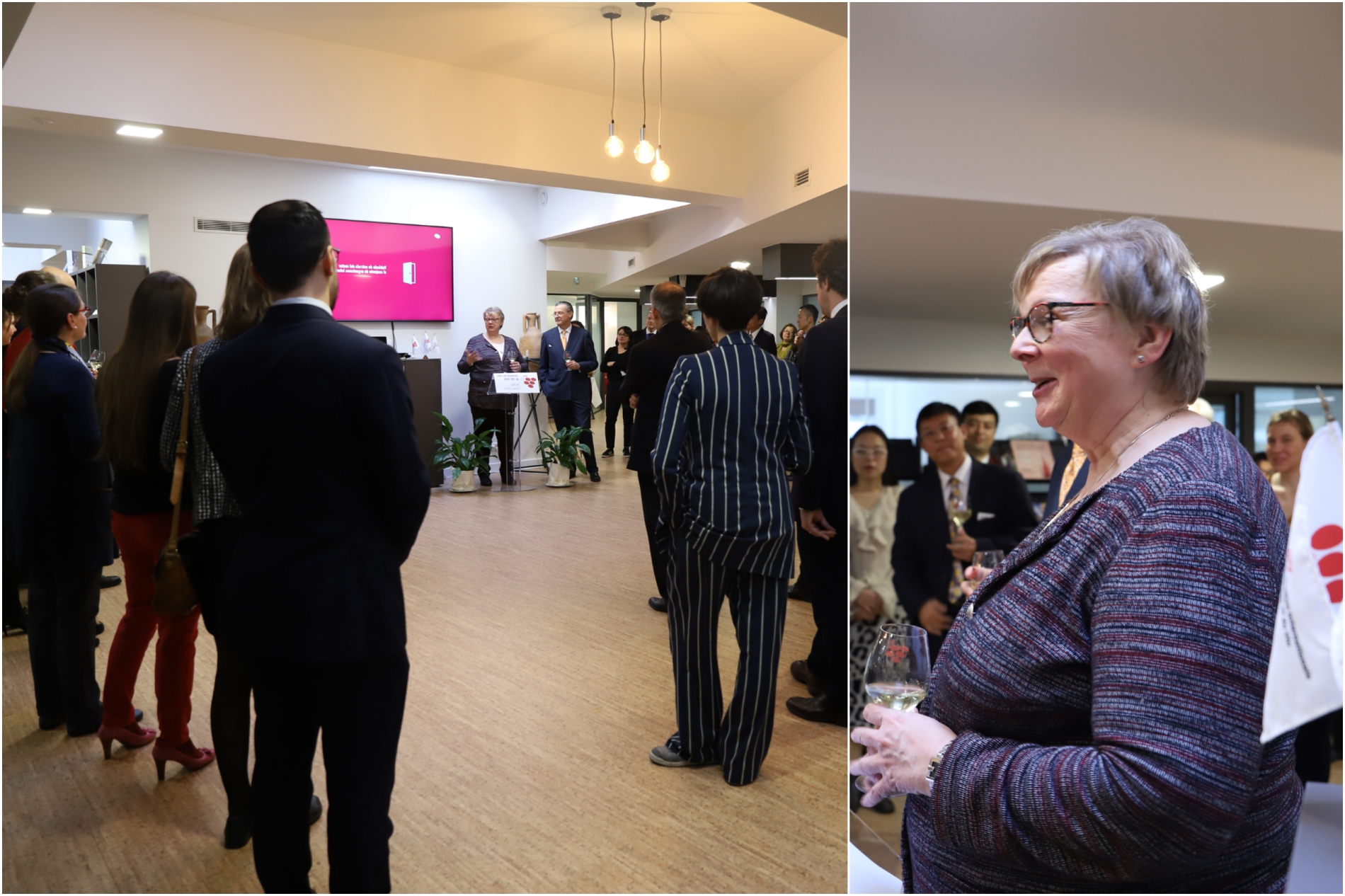In the presence of OIV Vice-President Monika Christmann, OIV Director General Pau Roca presented the Organisation’s commitments for the new year to representatives from the Diplomatic Corps, administrations and professionals in the vitivinicultural sector.
This was a first in the OIV’s new premises, which are “practical, modern headquarters for a transitory period. The definitive headquarters should not simply remain as offices for a Secretariat, but should be the International Centre of the Vine and Wine World,” said Pau Roca.
The Director General recalled the importance of the OIV as “an organisation that brings together nearly 750 experts who represent a wealth of knowledge and wisdom, a collective that is continually renewed, through national delegations that are prepared to get involved, provide responses, and suggest solutions to vine- and wine-related problems.”
“We can be proud of progress made on projects such as input reduction”
In his speech, Pau Roca cited climate change and the need to ensure safe international trade as the most important issues for the wine and vine-based product sector.

“Unfortunately, our own countries recently failed to reach an agreement at the COP25 in Madrid. However, this doesn’t mean that we are not making concrete progress, particularly within more specialised groups. Last week for example, as part of the “4 per 1000” initiative, I was delighted to see how many projects have made progress in this respect, projects that can really go a long way in providing an answer to carbon sequestration in soils,” the Director General highlighted.
In this sense, Pau Roca emphasised the role of the OIV: “we can be proud of progress made on projects set this year such as input reduction and soil characterisation by genetic techniques, which have opened our eyes about a previously unknown world of microorganisms, among other things.”
With regard to international trade, the Director General declared that it is vital commercial relationships remain fluid. “It is regrettable that some countries may put up trade barriers when at the OIV we offer harmonised standards; it is also unfortunate when some States suddenly set tariff increases due to other non-wine-related conflicts: wine should not be a currency,” the Director General stated.
The OIV set a roadmap in 2019 aligned with sustainable development objectives
The Director General remarked on how “the OIV has again demonstrated the vitality of its activities this year.” For example, the Organisation has participated in important international meetings such as those with the Codex Alimentarius, where the Organisation was strengthened by the intergovernmental representativeness of the vitivinicultural sector. The OIV was also present at over 50 events held under its high patronage, including competitions or scientific symposia.
During the October 2019 General Assembly, the OIV also approved its new Strategic Plan, which will come into force for 2020-2024. As such, “for the OIV, the year 2020 is set to be full of opportunities for the projects we have identified, which are perfectly aligned with the axes of the Strategic Plan, and with the principles and values that make viticulture a phenomenon present in all aspects: social, economic, cultural and environmental,” the Director General commented.
“For the 43rd World Congress of Vine and Wine on 23-27 November 2020, we will travel to Chile, one of the countries most active in the international wine trade and that is involved in research into problems of resistance and combating vine decay,” Pau Roca reported.
After Pau Roca’s speech, the OIV’s commitments for the New Year led to numerous discussions. These were fostered and enlivened by a tasting of still and sparkling German Riesling, produced at Geisenheim University by Vice-President Monika Christmann, and of Swiss wines – serving as a reminder of the hugely successful 42nd world Congress of Vine and Wine organised in Geneva in July 2019.
